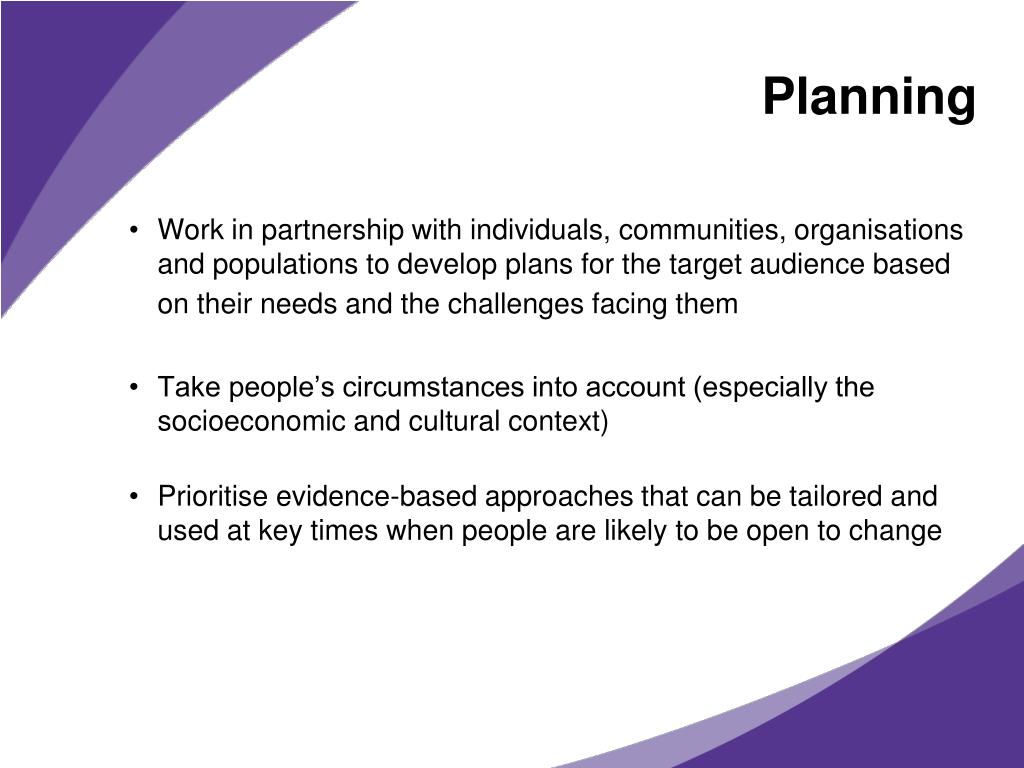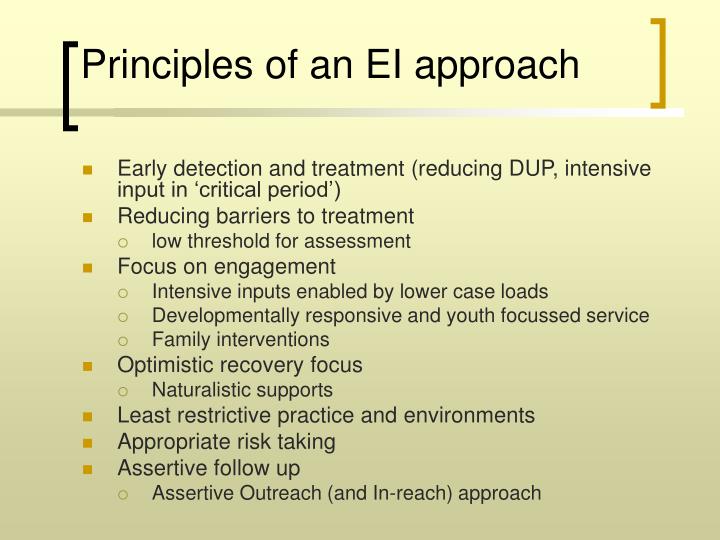
- #Principle of intervention install
- #Principle of intervention full
- #Principle of intervention series
You need multiple parallel experiments and they should be based on different and competing theories/hypotheses. its still in use, but I have also been working on some basic principles to expand on that. Some time ago I decided that we needed to have a more rigid process that would force people to take the various aspects of a safe-to-fail experiment into account in design, so we created a form.
#Principle of intervention full
One can only really understand a complex system by interacting with it (the probe of probe-sense-respond) and while people get that, getting them to take on board the full implications is another matter. Now one of the basic Cynefin mantras is that of safe-fail interventions, and lots of them, if the problem is complex.
#Principle of intervention series
Not to simply report what we had found, but to allow to explore the data and come up with a series of interventions that would hold out the possibility of achieving change, or through failure would allow learning to take place. We have completed a SenseMaker® project to understand employee attitudes and then spent one day with the senior management team. As it happens I was working on intervention strategy in Washington a week ago.


Please contact Cecilie Dinesen ( for further information.I may buy this T-Shirt as its a great slogan. The webinar is organised by the Red Cross Red Crescent Research Network on Mental Health and Psychosocial Support. If you have problems accessing, please try using a different browser (not Firefox) or read more here
#Principle of intervention install
If you don’t have Skype for Business (not the same as regular Skype) installed on your computer, you may be asked to install the “Skype for business web app plug-in”. You need to log in at and then access the webinar by clicking here. She developed the PFA: Guide for Field Workers (WHO and partners, 2011) and related materials, and recently conducted a five-year retrospective review of Psychological First Aid for Church of Sweden. In addition to clinical work in public mental health, she has over 20 years experience in international programs for children and families affected by disasters, conflict, HIV/AIDS, poverty and exploitation, and provided training and care to humanitarian aid workers in crisis settings. Leslie Snider, MD, MPH received her medical and psychiatry training in the northeast USA and her MPH in international health from Tulane University SPH&TM, where she directed a programme of study for 10 years in International Mental Health and Medical Anthropology. Hobfoll currently serves as the Judd and Marjorie Weinberg Presidential Professor and Chair of the Department of Behavioral Sciences at Rush Medical Center and is active in seeing trauma patients at the Rush trauma center

He has done the largest prospective studies on civilian distress in zones of high conflict and helped guide policy on disaster relief, terrorism response, and refugee crisis on 5 continents, integrating cultural context.

He has published over 300 journal articles and book chapters, and several books on stress and trauma, including the leading article from 2017: on the five essential elements of post-disaster psychosocial care. Hobfoll, PH.D. is an internationally recognized clinical psychologist with over 30 years experience working in mental health. A recording will be made available a few days after the webinar. Online audiences will have an opportunity to ask questions and discuss with the panel. Red Cross Red Crescent Research Network on Mental Health and Psychosocial Support is proud to present a one hour webinar on 16:00 to 17:00 CET (UTC +2) In the 10 years following their publication, the five essential principles have been extremely influential among practitioners, researchers and policy makers around the world.īut how have the five principles been used, or misused? Are they useful and appropriate in measuring outcomes of psychosocial interventions? And what is next for MHPSS research? Accordingly, psychosocial support after disasters or other traumatic events should promote five essential principles: In 2007, Stevan Hobfoll published a key article on post-disaster psychosocial support with a team of international experts “Five essential elements of immediate and mid-term mass trauma interventions: Empirical evidence.“.


 0 kommentar(er)
0 kommentar(er)
